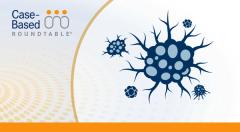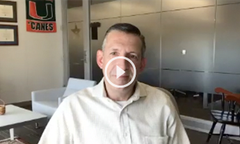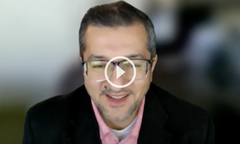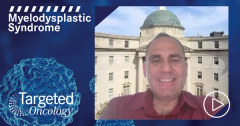
Significance of New Therapeutic Options in MDS and Other Blood Cancers
Abdulraheem Yacoub, MD, discusses imetelstat as a newer and exciting option for patients with myelodysplastic syndromes.
Episodes in this series

Abdulraheem Yacoub, MD, professor of Hematologic Malignancies and Cellular Therapeutics at the University of Kansas Medical Center, discusses imetelstat (Rytelo) as a newer and exciting option for patients with myelodysplastic syndromes (MDS).
In low- and intermediate-1 risk MDS and transfusion-dependent anemia, Yacoub says imetelstat offers a significant improvement in a population with limited effective treatments. The use of this drug can delay the need for hypomethylating agents and chemotherapy to later lines of treatment.
Use of imetelstat is also being investigated in trials for other blood cancers such as acute myeloid leukemia, myelofibrosis, and juvenile myelomonocytic leukemia. According to Yacoub, the development of imetelstat is a significant achievement in the oncology community and a major advancement for patients with MDS.
TRANSCRIPTION:
0:10 | The field of MDS has been stagnant with fewer therapeutic options, but fortunately now imetelstat has become another tool we have for the patients. All the options we have right now have a percentage of likelihood of working that is not universal. All our options are under 50/50 to actually work, so to have another option for these patients that could result in a hematological improvement that is durable and impactful is very precious. Many patients are going to benefit from this, and it will also delay our need to use or commit patients to hypomethylating agents and chemotherapy.
1:02 | This premise in MDS might be transferable to other blood cancers, so additional clinical trials are underway to see the utility and the ability to apply the same concepts of benefit in MDS to other blood diseases. So hopefully there'll be additional benefits from imetelstat. In addition, this really is a remarkable scientific achievement. This is a novel mechanism of action. It is a Nobel Prize winning discovery, and to apply this fantastic science and be able to deliver therapeutics that build on that science is really a big scientific win for the field. We're all excited that we could build on that success and deliver therapy that actually works for our patients.














































